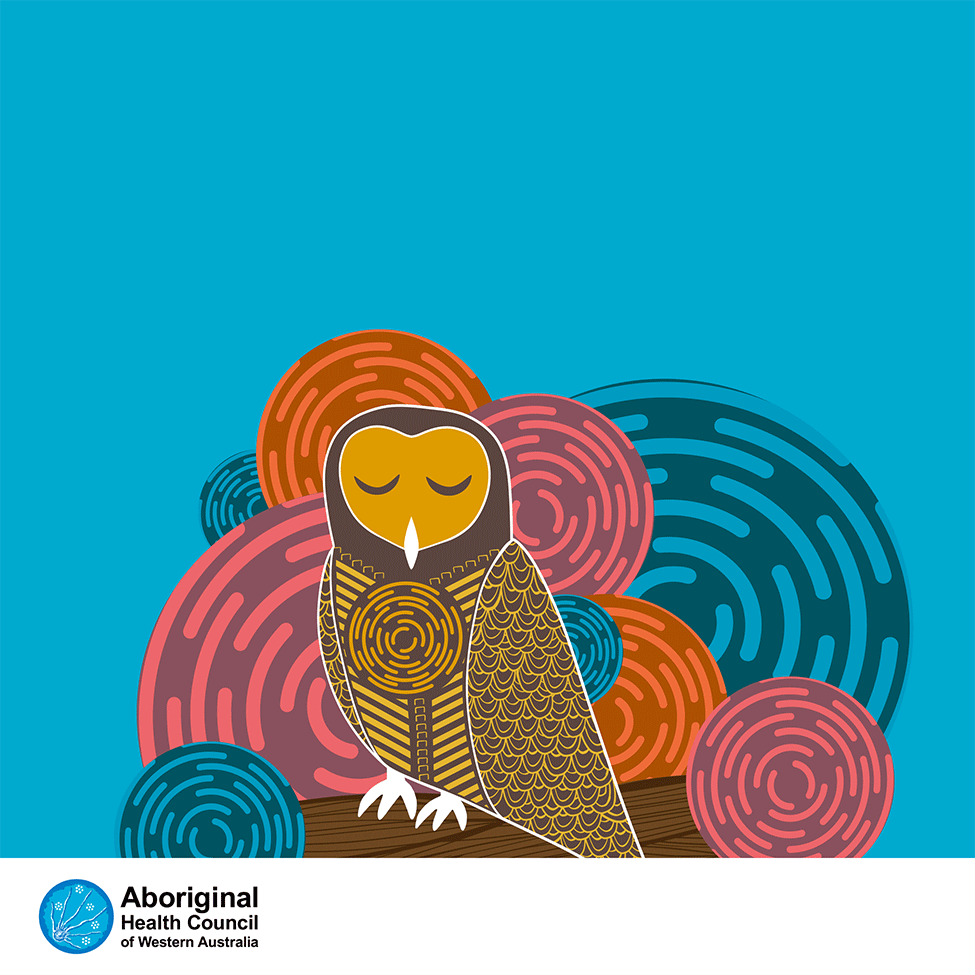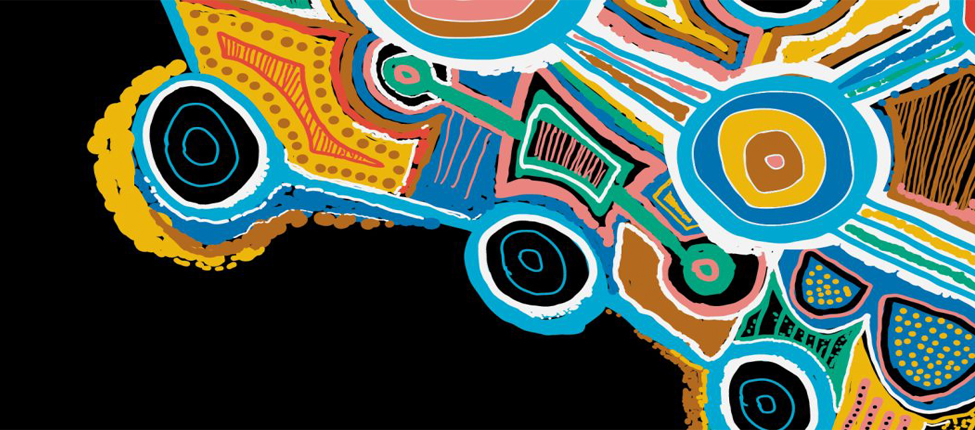Kaya everyone,
In our collective journey toward better health for all, I am compelled to confront a poignant reality: Why do our Aboriginal and Torres Strait Islander communities endure rates of Tuberculosis (TB) four to six times higher than other Australian-born populations? Why does this health inequality persist, especially when TB has been virtually eradicated in the non-Indigenous Australian-born demographic?
These questions echo beyond TB, resonating with other health challenges that disproportionately affect Aboriginal and Torres Strait Islander people — be it Rheumatic Heart Disease, ear and hearing problems, or diabetes. The root of these disparities lies in the complex tapestry of social and environmental determinants entwined with structural and historical factors that impede access to comprehensive and culturally attuned healthcare.
A recent enlightening study by Devlin et al, titled “The missing voices of Indigenous Australians in the social, cultural, and historical experiences of tuberculosis: a systematic and integrative review,” exposes the historical exclusion of Aboriginal voices in shaping TB policies. It passionately calls for Aboriginal and Torres Strait Islander people to not only have a say but to lead and partner in decisions aimed at eliminating TB.
Presently, Western Australia grapples with multiple TB clusters affecting Aboriginal communities, notably the outbreak declared by SA Health in the Anangu Pitjantjatjara Yankunytjatjara (APY Lands.) In response, the Aboriginal Health Council of Western Australia (AHCWA) and its dedicated Member Services tirelessly advocate for adequately resourced and culturally secure interventions from state and federal health authorities. Our goal is clear: to ensure that Aboriginal and Torres Strait Islander people across the state have access to the best screening, testing, and treatment options for TB.
At the heart of our advocacy is the call for Aboriginal voices to be included and prioritised in government-led responses. AHCWA Directors, Member Service CEOs, and clinical staff actively engage in state-wide and regional outbreak response groups, reinforcing the importance of community-centric strategies.
Guidance from the WA TB Control program urges clinicians in high-risk regions to consider TB in individuals with persistent coughs or other symptoms indicative of TB, emphasising the need for timely and appropriate testing.
To empower our communities with knowledge, AHCWA collaborates with Member Services to craft informative brochures, and we invite you to explore more about TB on our website.
“AHCWA continues to support our community post The Voice Referendum”
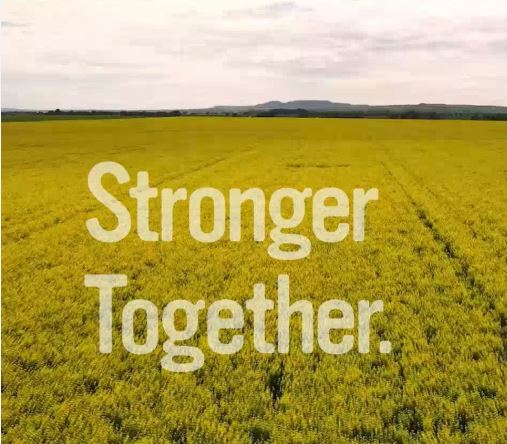
The Aboriginal Health Council of Western Australia (AHCWA) acknowledges the outcome of the Voice to Parliament Referendum. While this outcome may bring mixed emotions within our communities, we want to emphasise that AHCWA remains committed to improving the health and wellbeing of Aboriginal People and their communities in WA.
Our commitment to addressing the pressing health disparities and the broader health and wellbeing of Aboriginal and communities remains unwavering. We believe that Aboriginal People deserve the best possible health outcomes, and we will continue to advocate for improved healthcare access.
We value the passionate voices of everyone who participated in this referendum and encourage ongoing dialogue and unity within our communities.
As we progress, AHCWA will continue collaborating with government agencies, non-government organisations, and our communities to find innovative ways to address the health issues that disproportionately affect Aboriginal People. We remain committed to pursuing every avenue to ensure that the health and wellbeing of our communities are at the forefront of the national agenda. Our shared journey toward reconciliation and self-determination is ongoing, and we stand strong, resilient and committed to a brighter future for all Aboriginal People.
NACCHO CEO, Pat Turner’s said there has been a huge focus on the Voice. But now that’s done and dusted, we have to move on with closing the gap.
Pat Turner made some comments on ABC. You can view the full segment here.
AHCWA Inquiry into Child Development Services
On 28 November 2024, the Legislative Council, the Select Committee into Child Development Services, tabled an Interim Report, Child Development Services in Western Australia: Valuing our children and their needs. The report makes findings and recommendations about what can be done to reduce unacceptable waiting times for child development services and expand service provision.
Before the Interim Report being tabled, AHCWA’s Policy Team made a submission to the Parliament of Western Australia’s Inquiry into Child Development Services to improve access to paediatricians and allied health services in Aboriginal Community Controlled Health Services (ACCHS) back in November 2022.
The submission outlined critical challenges posed to its Member Services and saw an urgent need to be part of the solution to address and improve the health outcomes for Aboriginal children. It proposed vital recommendations for enhancing child health services in the metropolitan area and regional and remote locations.
Further reading here.
AHCWA AGM
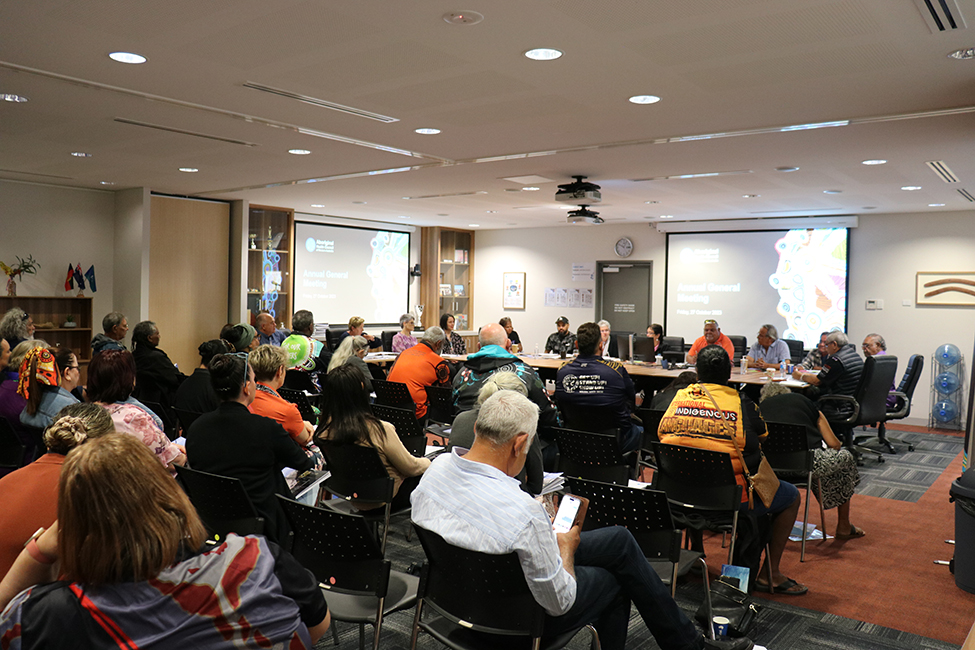
On Friday, October 27, we held the AHCWA AGM where we hosted key representatives from across the WA regions at our offices. A huge thank you to our Board of Directors, our Member Services representatives and AHCWA staff who were in attendance. We had a great turnout which presented a great opportunity to have a yarn about important topics.
A key role of our AGM is electing, re-electing and giving thanks and farewelling Board of Directors. This year’s AGM saw us welcome two new Directors of the Board, Doreen Nelson, who will represent the Perth Metro Region and Stanley Watson, who will represent the Pilbara Region. We congratulate them both on their appointment and look forward to working together with Doreen and Stanley over the next three years.
We thank outgoing Directors: Wade Garwood (Youth Director) and Debbie Woods (Treasurer) for their valuable contributions.
The AHCWA Board as of October 2023 is made up of the following Directors:
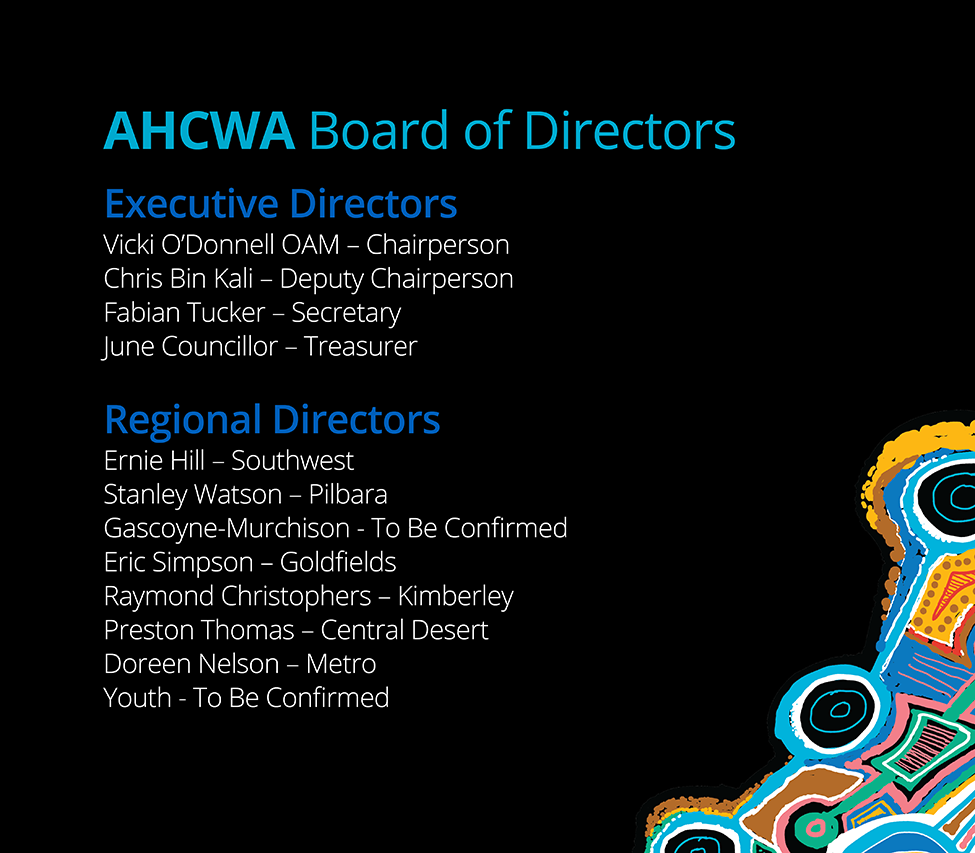
Please keep an eye on our website for updates on the Gascoyne Murchison and Youth Directors.
We also successfully updated our Constitution by Special Resolution a copy of which can be found here.
Take a look at the 22/23 Annual Report, which was endorsed by the Board here.
It was a year that we witnessed the Sector shift out of COVID-19 crisis management and into the ‘new normal’. Some deadly achievements and a true journey of resilience from across the Sector!
NACCHO Youth Conference 2023 – Noongar Boodjar
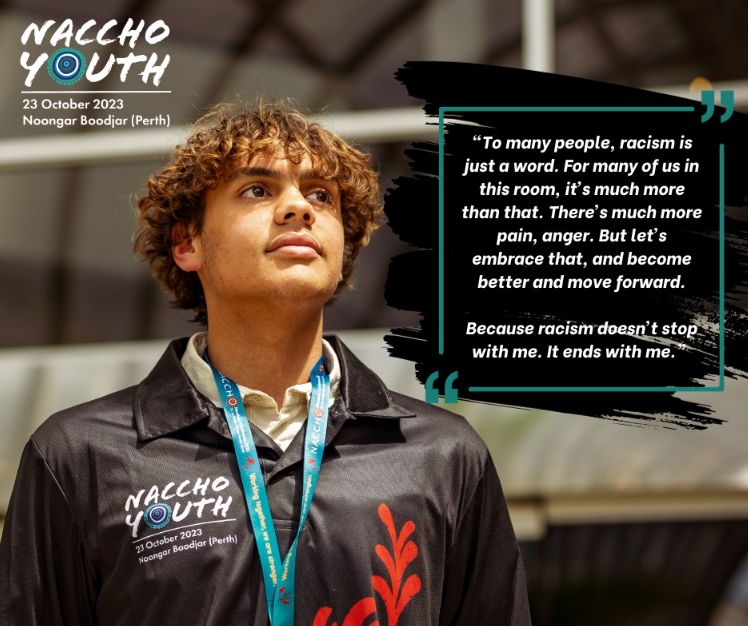
So great to see this young Wajarri Yuet Ballardong year 9 student inspiring the youth at the NACCHO Aboriginal Health Australia Youth Conference.
Trevor joined our Young Leaders program, delivered by the AHCWA Sexual Health Team, in Geraldton recently.
This program inspires Young Leaders by providing them with the tools on how to encourage their peers to engage in healthy behaviours and access relevant services. The program focuses on health issues that mostly affect young people – namely, healthy relationships; sexual health; blood-borne viruses; alcohol and other drugs mental health and social and emotional wellbeing.
See more information here.
The 2024 State Sector and Youth Conference dates and theme have been announced!
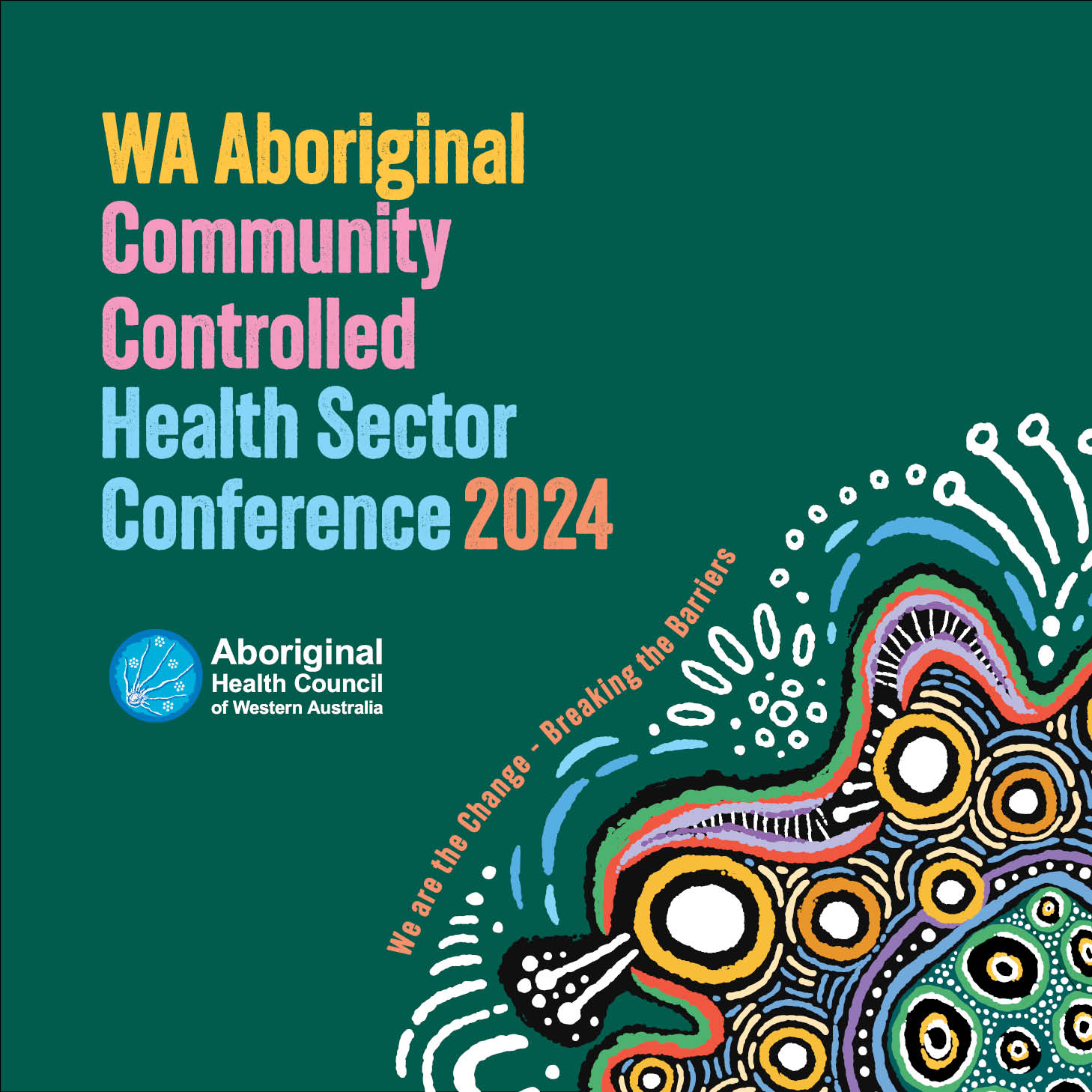
2024 WA Aboriginal Youth Conference: Monday 29 April 2024
AHCWA Members Forum: Tuesday 30 April 2024
2024 State Sector Conference: Wednesday 1 May and Thursday 2 May 2024
Awards Dinner: Wednesday 1 May 2024
The event will be held at The Esplanade Hotel in Fremantle. We’re working hard on creating an engaging, informative and enjoyable event for all participants. We look forward to seeing you there!
More information will be available in the coming weeks.
Should you have any queries regarding the conference in the meantime, please get in touch with us via events@ahcwa.org.
After a successful conference in Noongar Boodjar (Perth), we are excited to announce that the 2024 NACCHO Members’ Conference will be held on Ngunnawal and Ngambri Country (Canberra) 2–5 December 2024.
Get it in your calendars!
Congratulations Kimberley Aboriginal Medical Services – KAMS
Kimberley Aboriginal Medical Services (KAMS) are one of the winners of NACCHO’s COVID-19 Vaccination promotion competition. Vincent Carter, KAMS Communications and Engagement Officer, was a key player in making this happen and taking home first prize for KAMS in category 1.
Check out KAMS winning work “Do it for your mum, your dad, your family, and your community” here.
University of Western Australia’s Vice-Chancellor’s Indigenous-led Research Award
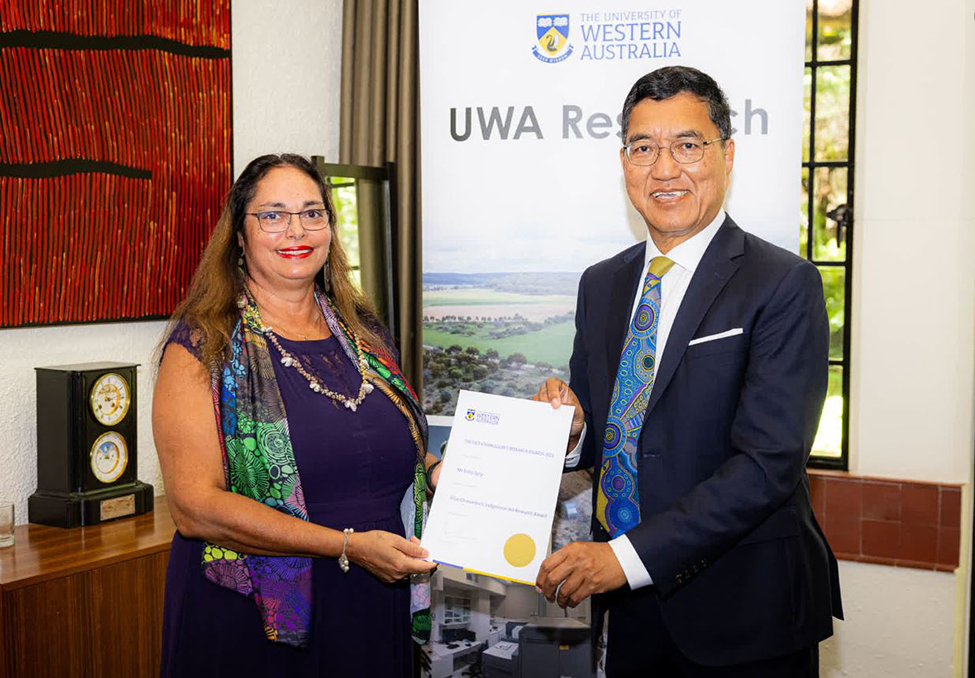
Erica Spry, Kimberley Aboriginal Medical Services – KAMS Aboriginal Senior Research Officer, has been honoured with the University of Western Australia’s Vice-Chancellor’s Indigenous-led Research Award.
Her groundbreaking work in Aboriginal health research is shaping a brighter, healthier future for Aboriginal communities. Congratulations, Erica!
Learn more about Erica’s impactful work here.
Bindjareb Aged Care Services Update – South West Aboriginal Medical Service
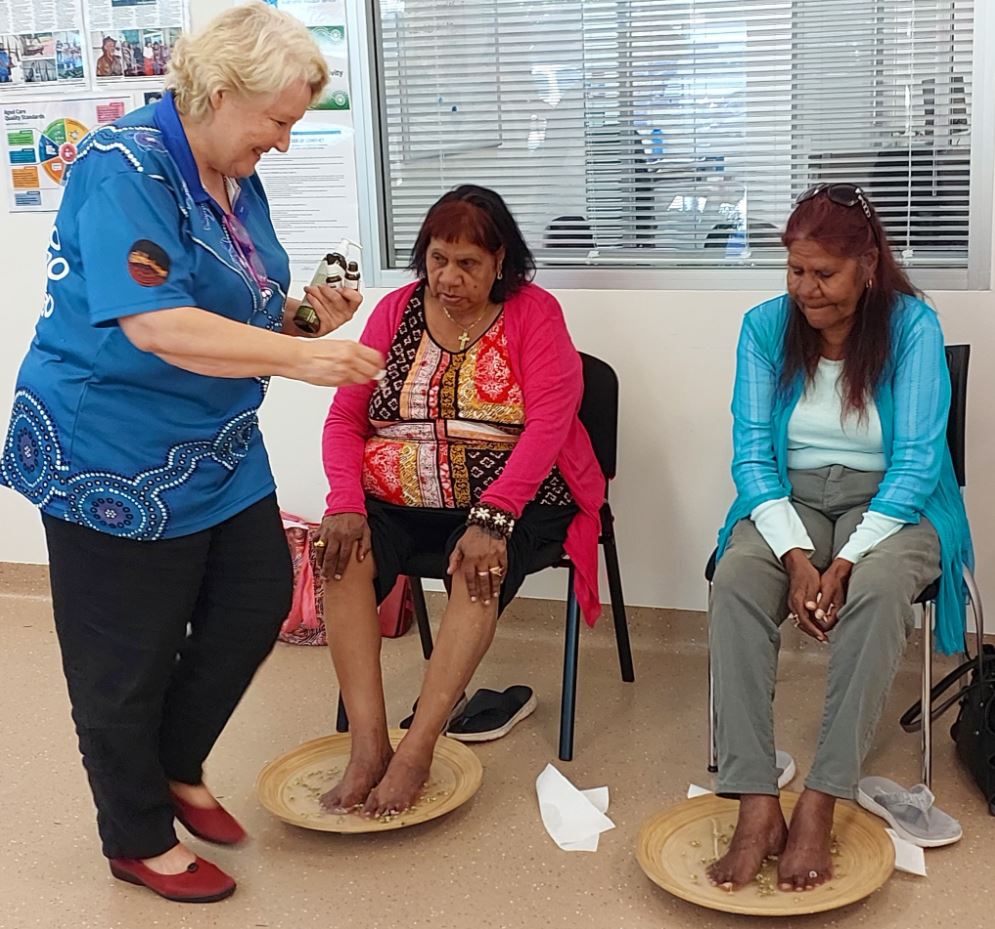
The first Aboriginal Aged Care Service in Perth was launched in Mandurah earlier this year and is operated by the South West Aboriginal Medical Service (SWAMS) offering services and supports for First Nations Elders in the Bindjareb region.
The Bindjareb Aged Care Services now has 107 Aboriginal clients aged 50 plus from Mandurah and surrounding areas including Boddington, Waroona and Pinjarra.
Social support groups run in Mandurah during the week and the social support group outreach is happening in Waroona, with planning is underway for Pinjarra. Social support group numbers are continually increasing, individual social support, and requests for domestic assistance and home maintenance. Staff numbers have increased with the onboarding of one senior community support worker, six community support workers, two carefinder project officers, one administration officer and an Aged Care Manager.
The facilility has been a hive of activity since it opened with many successful events like Our Elders NAIDOC luncheon, Fathers Day BBQ, ANZAC day, Remembrance Day, Mothers Day, Easter Lunch and the service is currently planning this year’s Christmas luncheon.
SWAMS Chief Executive Officer, Lesley Nelson, said Aboriginal community members had not been accessing the aged care services they were entitled to, so a culturally tailored and community-led model should help address this.
“27% Of Non-Indigenous Australians access aged care services compared to only 6% of First Nations Elders in the south-west region of Perth, SWAMS is working with the communities in this region to shift these outcomes,” she said.
“The services available at the new Bindjareb site provide social support, group activities, domestic assistance, basic home maintenance and transport to Aboriginal community members over the age of 50. The services also streamline the process for Aboriginal people to access aged care facilities through trusted Indigenous facilitators,” Lesley continued.
AHCWA attends 2023 NACCHO Members’ Conference and Rural Health West Forum
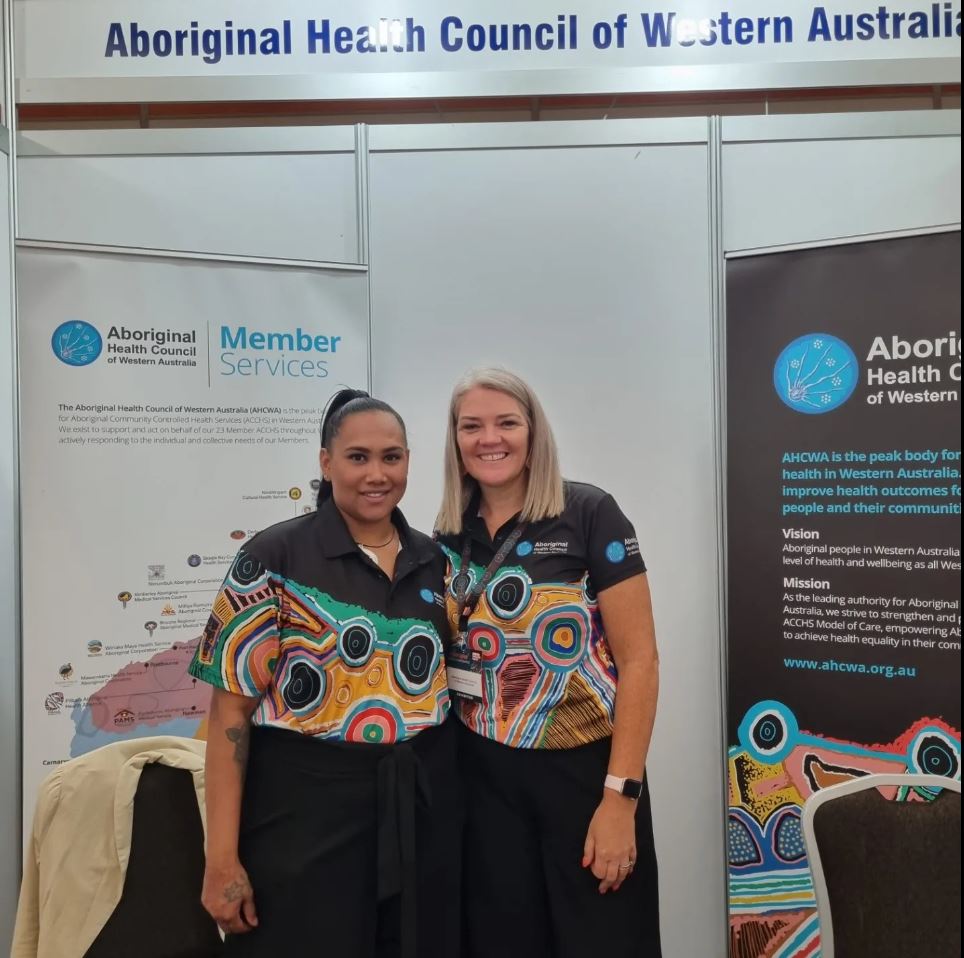
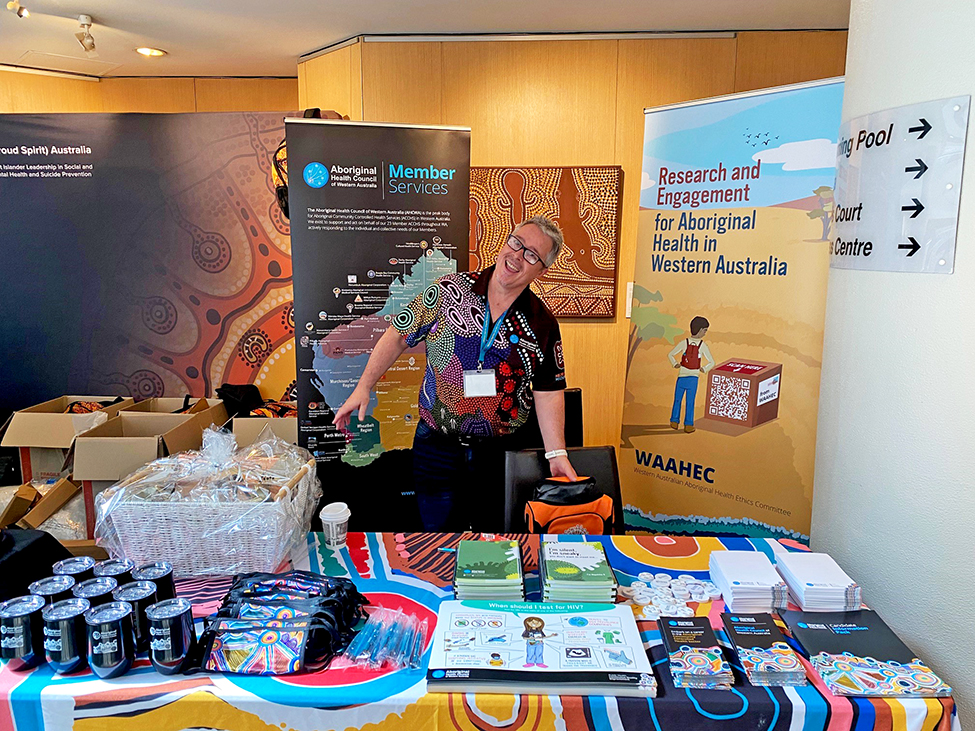
2024 WA Rural Health Excellence Awards
Many deserving finalists from across the state for the 2024 WA Rural Health Excellence Awards have been announced. We would like to call out the following health professionals and teams from our Member Services and thank you for the incredible contributions you make to the health and well-being of country communities.
Aboriginal Health Professional of the Year
Lesley Nelson, South West Aboriginal Medical Service SWAMS, Bunbury
Allied Health Professional of the Year
Dr Ivan Lin, GRAMS – Geraldton Regional Aboriginal Medical Service and WA Centre for Rural Health, Midwest
Community Health Professional of the Year
Jane Angliss, Ord Valley Aboriginal Health Service – OVAHS, Kununurra
GP of the Year
Dr Rosalie Schultz, Ngaanyatjarra Council Group Aboriginal Corporation Health Service
Nurse or Midwife of the Year
Michele Harvey, Ord Valley Aboriginal Health Service – OVAHS, Kununurra
Young Health Professional of the Year
Tia Brand-Williams, Puntukurnu Aboriginal Medical Service, Newman
Congratulations and well done to all!
Read more here.
AHCWA’s Ear Health Team Partners with EarTrain Tafe NSW
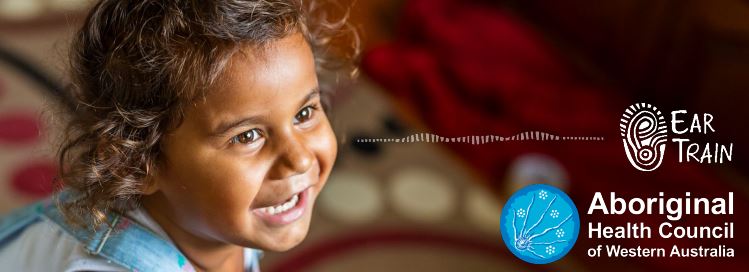
AHCWA’s Ear Health team is excited to partner with EarTrain, delivered by TAFE NSW, to assist with delivering the practical workshops as part of EarTrain’s successful online training program.
There will be a series of 1 day workshops in Albany, Bunbury, Kalgoorlie, Broome, Geraldton and Perth in early 2024. The workshops will be focusing on working with babies, including Tympanometry for under 6 months and Otoacoustic Emissions (OAEs).
The training provides tools to identify and manage otitis media and other hearing conditions in Aboriginal communities. It has over 1600 participants nationally, and their trainers are Audiologists with years of experience working in Aboriginal and remote communities. This experience benefits our participants, as trainers have established networks across Australia to understand the referral pathways available in communities.
Tafe Digital, Manager of Strategic Projects, Joanne O’Malley, said they have fostered strong partnerships with stakeholders across the country, representing ACCHOs/AMSs, health departments, and communities which has given them a solid understanding of the ear and hearing health landscape across the country.
Tafe NSW partner with local audiologists and Hearing Australia to provide ongoing at-elbow support for all of their participants.
EarTrain is funded by the federal Department of Health and Aged Care. Register for the Ear Health for Babies workshop here.
KAHRA Forum
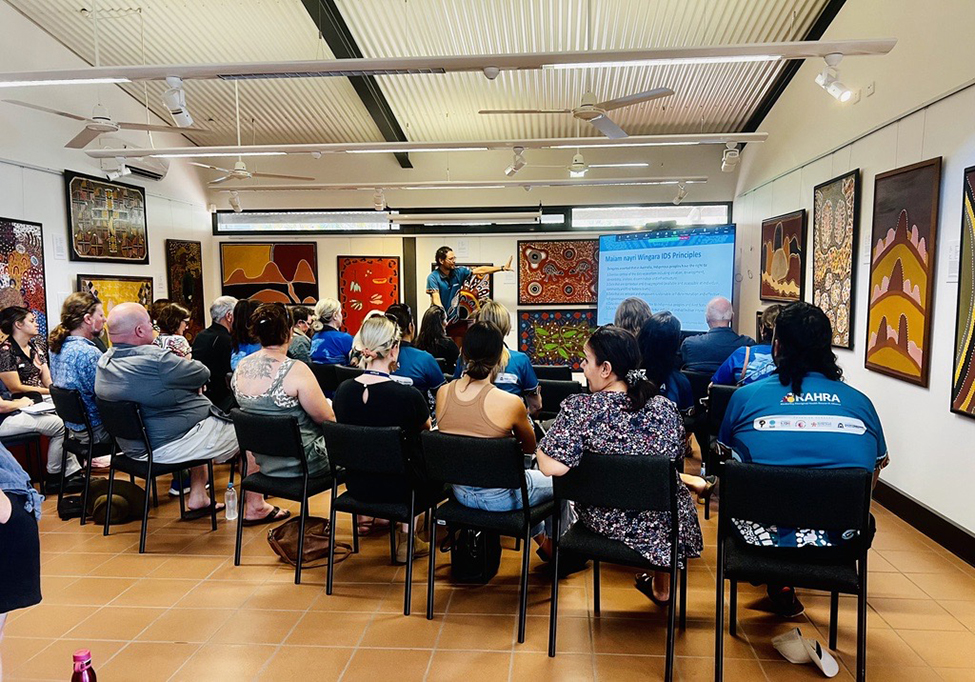
Kimberley Health Evidence Data Platform (KHEDP) Project:
KAHRA is actively involved in the KHEDP project, which seeks to amalgamate healthcare data from both ACCHS and government sectors. Central to this endeavor are principles of community control and Indigenous Data Sovereignty. Currently in the governance establishment phase, the project has forged crucial partnerships, with a significant representation from Kimberley ACCHS on the steering committee.
Support Network for Aboriginal Researchers:
The Support Network for Aboriginal Researchers has continued to evolve and has received affirming feedback from its members. This network provides a secure and trusted space for researchers to convene, share challenges, and exchange insights.
KAHRA Research Workforce Working Group:
Formed in mid-2022, the KAHRA Research Workforce Working Group has been meeting regularly to collaborate on shared workforce-related goals. This collaborative effort has resulted in the development of the KAHRA Research Workforce Strategy and Action Plan.
15 Years of Research in the Kimberley Study:
KAHRA successfully completed the “15 Years of Research in the Kimberley” study. A paper stemming from this foundational project was published in early 2023. The insights gained and recommendations formulated through this study will contribute to shaping the Kimberley Aboriginal Health Research Model currently under development.
KAHRA Network Launch:
In a significant milestone, the KAHRA Network was officially launched in March 2023. This platform serves to unite organizations aligned with the principles, values, and purpose of KAHRA, fostering a collaborative environment for shared objectives.
KAHRA’s journey since its inception reflects a commitment to meaningful partnerships, community-driven research, and a steadfast pursuit of improving health outcomes for Aboriginal communities in the Kimberley region. The alliance continues to be a beacon of positive change and collaboration in the realm of health research.
We celebrate a 10 year milestone for AHCWA employee Dawn
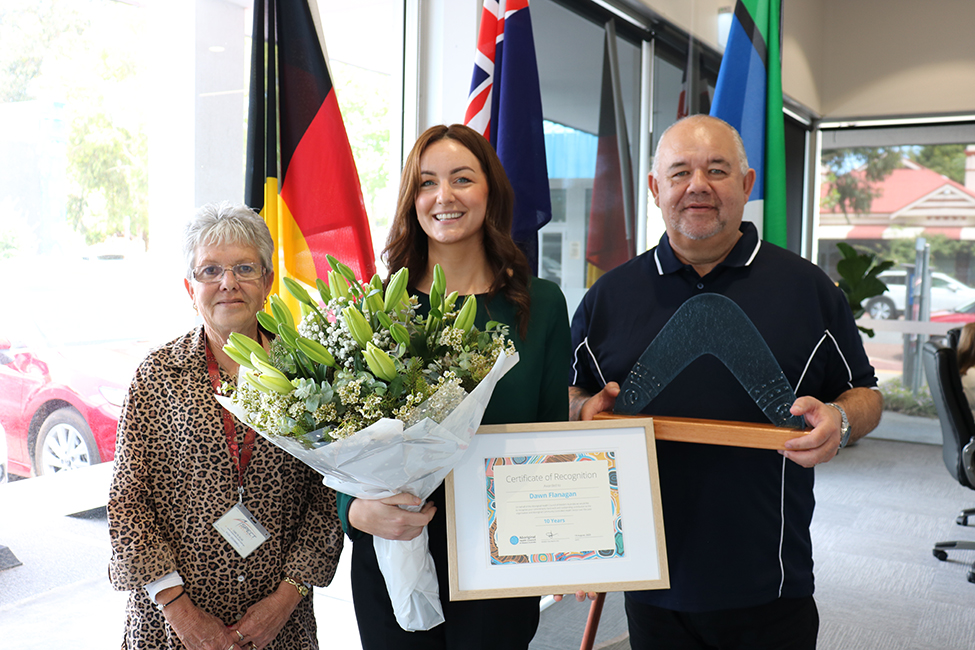
Congratulants to Dawn Flanagan, on 10 years of dedicated service to the Aboriginal Health Council of Western Australia.
Dawn was initially engaged as a temporary administration assistant; however, she quickly became a valued team member and was engaged on an ongoing basis in August 2013. During the last 10 years, Dawn has held a number of roles within the organisation, including an Administration Officer for the RTO, where she played an integral role in the smooth running and compliance of the RTO.
Dawn then took a leap and became a member of the Tackling Indigenous Smoking team as an educator, where she was an integral part of the team focusing on population based health approaches to education in smoking cessation.
Dawn is currently employed as the organisations SEWB Pilot Project Officer responsible for providing high quality support and assistant to the SEWB Pilot program.
Dawn has faced periods of uncertainly around ongoing employment and funding; yet during these times, Dawn has shown resilience and adaptability, a credit to her persona.
She is not only a valued team member of her Social and Emotional Wellbeing Team, but also a respected and valued colleague amongst her peers. Dawn is a quiet achiever and is quiet in nature; however, those who have are lucky enough to get to know her will know she is funny, caring and fun to be around.
We thank Dawn for her service and commitment to the organisation and look forward to working with her for years to come.
Corporate Services Forum
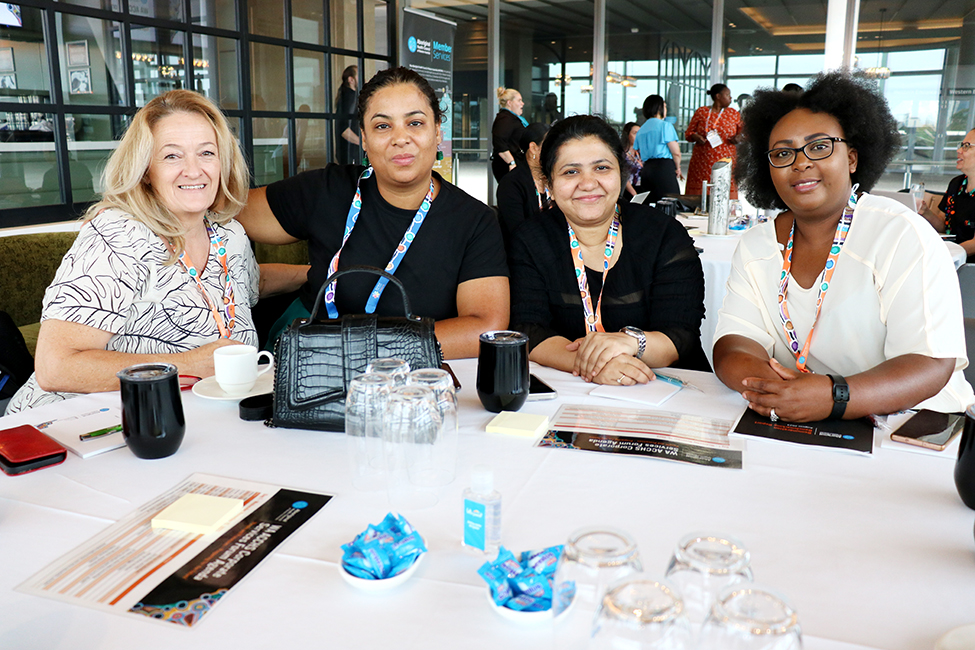
There was a great turnout at our WA ACCHS Corporate Services Forum at Optus Stadium, on Wadjuk Noongar lands. The Forum began with a Welcome from Uncle Nick Abraham, exploring Noongar history and cultural influence. AHCWA CEO Des Martin opened the forum, followed by a workshop on ‘The ChatGPT Revolution’ by Professor Ross Yates. We also had sessions covering cybersecurity, digital marketing, and events management. Day 2 covered grant writing, work health and safety regulations, revenue and fringe benefit tax, and a costing and pricing workshop. The forum concluded with a panel on corporate services challenges, offering valuable insights and takeaways for attendees.
Thank you to everyone who made our Corporate Services Forum a resounding success! Let’s continue to inspire, innovate, and elevate the standards of Corporate Services in the ACCHS.
Further reading here.
Making News Headlines
Family calls for Aboriginal health workers in prison system “day and night” after death in custody.
The mother-in-law of Wayne Ugle, the young Noongar father who died in custody on 6 November, has called for Aboriginal Health Workers to be based in the prison system “day and night”. Margaret Kelly said the family received formal confirmation that Mr Ugle had dies in custody eight hours after he passed away, having heard earlier only through a relative in prison.
Mr Ugle’s family said that Mr Ugle had asked for heart medication before his death in custody, but his requests were ignored. Ms Kelly said she had urged investigating officers to get Aboriginal Health Workers in to work in lock-ups. “We spoke with the Coroner Detectives and we put it to them they need to get Derbarl Yerrigan (Health Service) in the prison system, even for the overnight prisoners in the Watch Houses, they need to get Aboriginal Health Workers in there night and day.
Ms Kelly said the detectives had provided a pamphlet to her with a counseling service number, and that the Department of Child Protection had offered to assist her daughter Natasha, who, with Mr Ugle, had been caring for six foster children (four of whom are still minors) in addition to their three children.
You can view the National Indigenous Times article Family calls for Aboriginal health workers in prison system “day and night” after death in custody in full here.
Employment Opportunities
